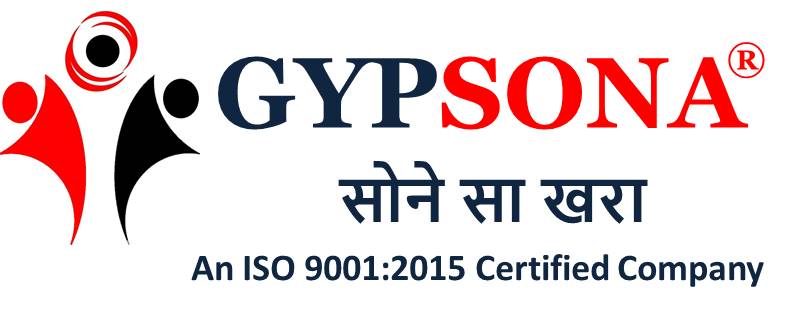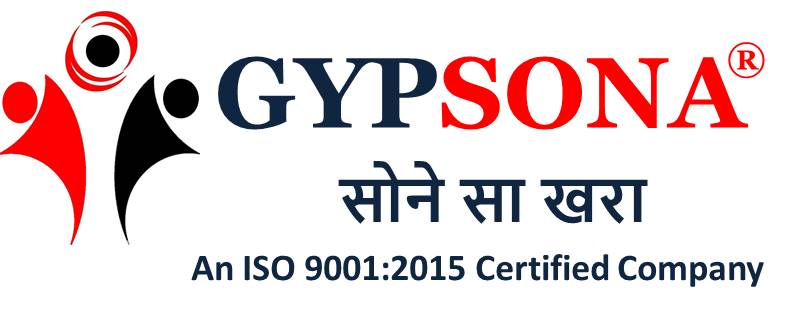10 Nov Fertilizer CMS Gypsum Granules
Agriculture is the backbone of India’s economy. Farmers face many challenges today. They need solutions that boost crop yield while preserving the soil. One such breakthrough is Fertilizer CMS Gypsum Granules. With over a decade of experience in content writing for the construction and industrial materials sector, I am excited to share how these innovative granules are transforming sustainable farming practices in India.
What Are Fertilizer CMS Gypsum Granules?
Fertilizer CMS Gypsum Granules are a new kind of soil amendment. They combine the benefits of gypsum with essential fertilizer nutrients. Gypsum, a natural mineral rich in calcium and sulfur, has long been used to improve soil structure. When mixed with fertilizer compounds, it helps correct soil pH and enhances water retention. The “CMS” in the name refers to a proprietary blend that ensures a controlled and sustained release of nutrients.
Imagine your soil as a sponge. Over time, it loses water and nutrients. Fertilizer CMS Gypsum Granules act like little reservoirs. They slowly release vital nutrients, making the soil healthier over a longer period. This means that your crops can benefit from a steady supply of nourishment rather than a quick burst that fades away.
Recent Breakthroughs in Production
The journey to develop Fertilizer CMS Gypsum Granules has been marked by significant scientific and technological advancements. In the past, the use of gypsum in agriculture was limited to its role as a soil conditioner. However, recent breakthroughs have changed the landscape.
Enhanced Formulation Techniques
Modern production techniques allow for precise blending of gypsum with fertilizer nutrients. Manufacturers can now control the granule size, shape, and nutrient content with great accuracy. This uniformity ensures that every granule works efficiently. A well-made granule means that farmers get consistent results across their fields.
Eco-Friendly Additives
One of the most exciting breakthroughs is the integration of eco-friendly additives into the granules. These additives help reduce environmental impact. For instance, some formulations now include recycled organic matter or bio-based polymers. These not only improve the performance of the granules but also promote sustainability—a key concern for modern agriculture.
Controlled Release Technology
Controlled release is a game changer. With traditional fertilizers, nutrients often wash away before the plants can absorb them. In contrast, Fertilizer CMS Gypsum Granules are designed to release nutrients slowly over time. This controlled release helps prevent nutrient leaching, a common problem in conventional fertilization. It ensures that plants get the right amount of nutrients when they need them, boosting crop growth and reducing wastage.
Potential Applications in Agriculture
Fertilizer CMS Gypsum Granules are not just a laboratory innovation. They are already making a tangible difference in the fields. Let’s explore some of the ways they are being used.
1. Improving Soil Structure and Fertility
Gypsum is known to improve soil structure. It helps break up compacted soil, allowing water and air to penetrate. When combined with fertilizer, these granules enhance soil fertility. Farmers in regions with heavy clay soils, such as parts of Punjab and Haryana, are finding that these granules help improve drainage and root growth. Healthier soil means stronger plants and better yields.
2. Mitigating Soil Salinity
Soil salinity is a major challenge in many parts of India. Excess salts in the soil can damage crops and reduce yield. Gypsum helps to displace sodium ions, lowering soil salinity. When used as part of Fertilizer CMS Gypsum Granules, it not only conditions the soil but also supplies essential nutrients. This dual action can be crucial for farmers struggling with saline soils in regions like Gujarat and Rajasthan.
3. Enhancing Water Retention
Water is a precious resource in agriculture. With erratic rainfall patterns, water retention in soil has become more critical than ever. The granules work by improving the soil’s ability to hold water. This means that during dry spells, crops have access to moisture for a longer time. Think of it like a slow-drip irrigation system embedded in your soil.
4. Boosting Crop Yields
The slow and steady release of nutrients means that crops can absorb more of what they need over time. This gradual nourishment leads to healthier plants and, ultimately, higher yields. Several pilot projects in small farms across India have reported a noticeable increase in productivity after switching to Fertilizer CMS Gypsum Granules. In some cases, yields improved by up to 20% compared to traditional fertilization methods.
Real-World Examples and Analogies
To make these benefits clearer, let’s look at some real-world examples and simple analogies.
Case Study: A Farm in Punjab
In a village in Punjab, a group of progressive farmers decided to try Fertilizer CMS Gypsum Granules on a portion of their farmland. They mixed the granules with their regular soil treatment. Over the growing season, they noticed a significant improvement. The soil became looser, crops grew taller, and water usage was more efficient. One farmer compared it to upgrading from a regular water bottle to a high-tech insulated one—both kept things better over time.
Everyday Analogy
Imagine you are baking a cake. You have two types of flour: one that releases flavor immediately and one that releases flavor slowly throughout the baking process. The latter makes the cake taste consistently delicious from start to finish. Fertilizer CMS Gypsum Granules work in a similar way. They don’t just dump nutrients all at once. Instead, they provide a balanced nutrition schedule that benefits the crops continuously.
Future Trends in Fertilizer Technology
The future of Fertilizer CMS Gypsum Granules looks promising. As agriculture continues to evolve, several trends are set to shape the next generation of fertilizers.
1. Customization for Specific Crops
Different crops have different nutritional needs. Future formulations may be customized for specific plants. For example, granules designed for rice paddies might have a different nutrient mix than those for wheat fields. Customization can lead to even more efficient use of resources and better crop outcomes.
2. Integration with Smart Farming
Smart farming is on the rise in India. Farmers are increasingly using data-driven approaches to manage their fields. Imagine a scenario where soil sensors communicate with fertilizer systems to adjust nutrient release in real-time. Fertilizer CMS Gypsum Granules could play a key role in such smart agriculture solutions, ensuring that crops receive precisely what they need when they need it.
3. Increased Focus on Sustainability
Sustainability is no longer optional; it is essential. Future developments in granule technology will likely place an even greater emphasis on eco-friendly practices. This means further reducing the environmental footprint of fertilizer production and usage. With global awareness on climate change, sustainable fertilizers will be in high demand.
4. Wider Adoption Across Regions
Currently, many innovative fertilizers are concentrated in certain parts of India. However, as awareness and production increase, Fertilizer CMS Gypsum Granules are expected to reach a wider audience. Farmers in remote and semi-arid regions will benefit from improved soil health and higher crop yields, paving the way for agricultural growth across the country.
How Do These Granules Fit into the Bigger Picture?
Fertilizer CMS Gypsum Granules are more than just a new product. They represent a shift towards smarter, more sustainable agriculture. By combining traditional soil conditioners with modern fertilizer technology, they offer a holistic solution. They address multiple challenges—soil fertility, water retention, and salinity—at once.
In many ways, they embody the spirit of innovation. They show how centuries-old practices can be enhanced with modern science. For India, a country with deep agricultural roots, this is a promising development. It offers a way to honor traditional farming techniques while embracing new technologies that promise better yields and sustainable growth.
Conclusion
Fertilizer CMS Gypsum Granules mark an exciting advancement in sustainable agriculture. They bring together the proven benefits of gypsum with the modern needs of effective, controlled fertilization. By improving soil structure, mitigating salinity, enhancing water retention, and ultimately boosting crop yields, they offer a multifaceted solution to many of the challenges faced by today’s farmers.


No Comments